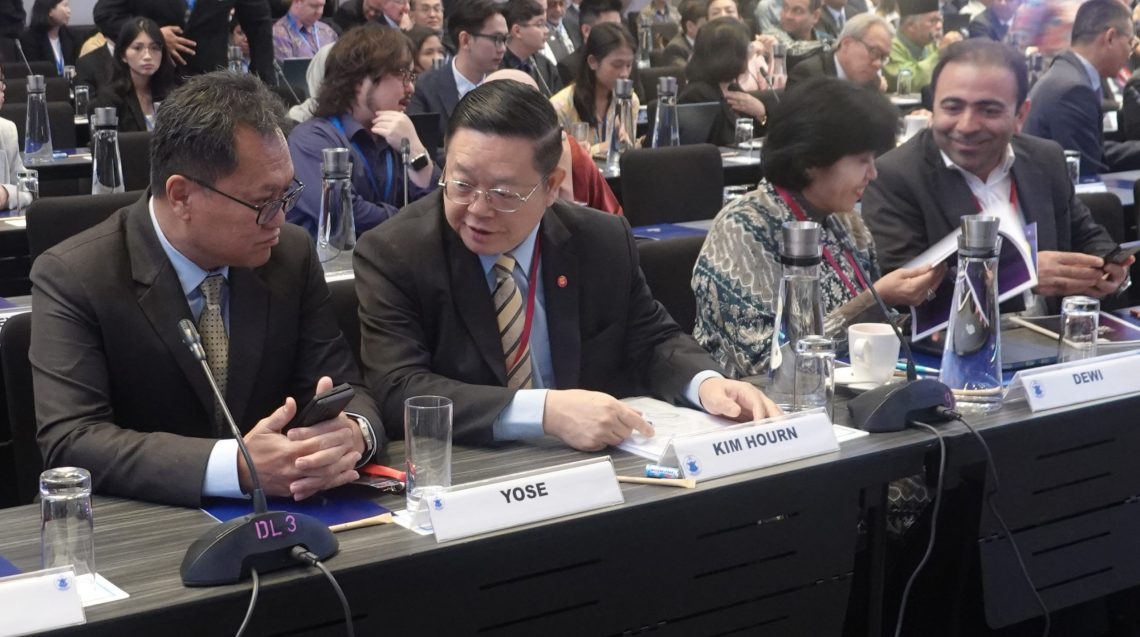
Asian countries are looking forward to a trend toward multipolarity and the United States and China are set to support an “inevitable peace”, a regional forum in Malaysia heard on Wednesday.
Institute of Strategic & International Studies (ISIS) Malaysia Chairman Mohd Faiz Abdullah highlighted the challenges facing the current international order, including the shift from unipolarity to multipolarity and the growing influence of emerging middle and major powers.
“What is clear is that unipolarity, and perhaps even bipolarity, is on its way out,” Mohd Faiz said in his opening address at the 37th Asia-Pacific Roundtable, themed “Crisis in an Interregnum”.
Over 100 delegates, including some of Southeast Asia’s key business executives, experts, and government officials attended the high-level symposium to discuss the increasingly complex strategic landscape and how this affects the global order
The forum, which was held from June 4 to 6 in Kuala Lumpur, was convened by the ISIS Malaysia, and organized on behalf of the Association of Southeast Asian Nations Institutes of Strategic and International Studies (ASEAN ISIS) — a network of some of the region’s biggest policy institutes and think tanks.
ALSO READ: Kuala Lumpur roundtable discusses crisis in an interregnum
Over 100 delegates, including some of Southeast Asia’s key business executives, experts, and government officials attended the high-level symposium to discuss the increasingly complex strategic landscape and how this affects the global order.
For the Global South, the choice is not whether to side with China or the United States, according to Victor Gao Zhikai, vice-president of the Beijing-based Center for China and Globalization.
“The real choice is between whether China or the United States ¬— or both China and the United States — are doing the right thing or the wrong thing,” he said.
“If China does the right thing, we want to learn from it. If the United States is doing the wrong thing, why do we follow their footsteps?”
Despite the fluctuation of bilateral relations, staging a war will never be an option for the two countries, said Gao, one of speakers at a panel discussion on major power rivalry.
“All of us need to promote or instigate for peace, rather than agitate for war between China and the United States,” Gao said, adding that no one will benefit from any conflict.
While there are concerns about how the US presidential election in November might affect bilateral relations, Gao said he believes there will be “inevitable peace” between the two countries.
Yun Sun, a senior fellow at the Stimson Center, a Washington-based think tank, said that the two sides have been conducting dialogues and strengthening cooperation in several areas.
“We're also seeing cooperation for possible joint law enforcement (and) contract audits. We’re seeing discussions about issues including the Gaza crisis,” Yun said.
“So, we are basically seeing a lot of (cooperation) activities happening between the two”, which then helps to mitigate the tense relations,” she said.
Yun said the results of the presidential election are unlikely to affect US policy on China because Washington maintains “continuity and consistency on some of the approaches to China”.
Herve Lemahieu, director of research at the Lowy Institute in Australia, said he is optimistic about the Asia-Pacific, noting that the region has not seen conflicts such as that happening in Europe and the Middle East.
“So, there is still hope in Asia for us to avoid the worst,” Lemahieu said.


